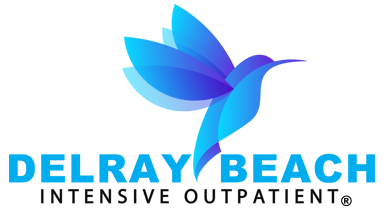One of the reasons that our intensive treatment program takes the Twelve Steps as one of its foundational aspects is because there is so much empirical evidence for the utility of twelve step support groups to aid in recovery. Membership in Alcoholics Anonymous has been shown by multiple studies to be more effective than formal psychological treatment in helping those who regularly attend meetings to stay sober, an effect that may largely be due to the built-in support system that members become for each other.
Opioid addicts who reported receiving more support were shown to be more likely to be in treatment, and many other studies have shown correlations between more robust support systems and better treatment outcomes and lower relapse rates.
The people in a recovering addict’s support system can play many important roles in their recovery process. Addiction is often fueled by loneliness as patients turn to drugs instead of people to meet their emotional needs, a problem that only deepens when their addiction cuts them off further from the other people in their lives.
Thus, people recovering from substance abuse disorder find benefit in having people they can connect with as they move through their recovery journey, who can offer them encouragement and act as their personal cheerleaders when it comes to resisting their craving and instituting healthier coping mechanisms instead.
Something as simple as having someone to call and vent to as painful feelings encroach or who can engage them in a fun activity to distract them from their cravings can make all the difference when someone is facing a long, painful road towards recovery.
Along with offering vital emotional support and encouragement, members of a support system can also offer practical support, such as giving someone rides to treatment or offering them resources that they can use to help them rebuild their life, like helping them to nurture professional connections or find a job.
Support groups also have a uniquely powerful role to play in fostering addiction recovery because hearing that things will get better and that a happy sobriety is possible is all the more poignant from someone who has actually experienced it.
Connecting with others who have actually gone through addiction can also help recovering addicts learn coping mechanisms and best practices that will actually work, and hearing from others who have been through similar struggles might help those in recovery to not feel so “crazy” despite the sometimes shocking depths their addiction may have driven them to.
The structure of twelve step fellowships in particular also work to create accountability and connection by connecting each beginner to the program with a sponsor, who will act as their individual guide through the twelve steps and early recovery. Later, becoming a sponsor themselves and working to guide struggling newcomers also helps to keep participants engaged in recovery long-term.
Though they can play a critical role, support groups are far from the only resource recovering addicts have when building their support systems. Other social outlets like religious groups, sports teams, arts collectives, and countless others can also be great places to nurture sober connections.
An emotional support animal could also provide non-judgemental companionship to help supplement your human connections, and online support groups are also always an option if practical considerations or changing coronavirus concerns make in-person gatherings feel unfeasible.
And, of course, the most obvious place that someone recovering from a substance use disorder might search for support would be from their family—but not all people who struggle with substance abuse have families who are willing or able to support their recoveries, due to factors like their own mental health or substance abuse struggles or lack of resources. Some people who abuse substances may also have damaged their relationships with their family beyond repair in the course of their disorder.
However, professional treatment that incorporates participation in group therapy and encourages active participation in recovery fellowships and support groups can still provide clients with important opportunities to build their support system. Residing in one of our sober living residences could also be a great way to immerse yourself even further in the world of recovery and to make meaningful connections with others who are walking down the same path.
To learn more about our intensive outpatient addiction treatment program, you can call us anytime at 833.637.033 or contact us online anytime here.
Sources:
ncbi.nlm.nih.gov/pmc/articles/PMC2856126/
med.stanford.edu/news/all-news/2020/03/alcoholics-anonymous-most-effective-path-to-alcohol-abstinence.html
.ncbi.nlm.nih.gov/pmc/articles/PMC5529042/
